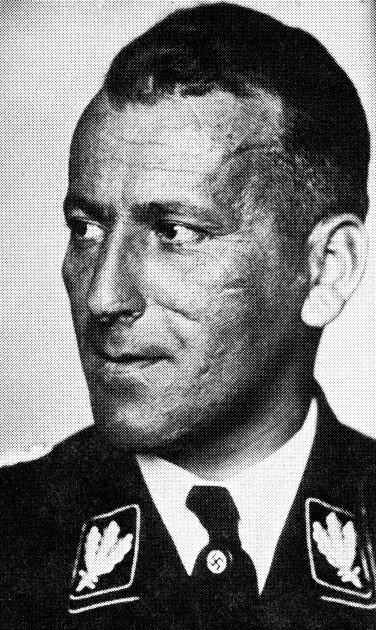Students on the campus of Wheaton College during the 1940s had grown up in largely sheltered environments, free from bombings or foreign invasions, worshiping safely amid families and churches. It was surely enlightening, if not jarring, for these young men and women to interact with veterans like George W. Griebenow, who returned from WW II not only a decorated combat survivor but a key figure in apprehending a top ranking Nazi general. Seasoned at the age of 20, he had a few stories to tell.

A freshman at Wheaton College when inducted into the Army on July 10, 1944, Griebenow returned to campus after the war to pursue ministerial studies. For a few months during his Wheaton College career, he dated Elizabeth Howard, later well-known author and wife of missionary Jim Elliot. Griebenow’s roommate was Ed McCully, who would later die with Jim and four comrades in Ecuador at the hands of the Waodani Indians.
While serving in Gen. George Patton’s Third Army, eighteen-year-old Sgt. Griebenow was assigned leadership of a squadron tasked with capturing General Ernst Kaltenbrunner, head of Hitler’s Gestapo. Under cover of darkness, the young infantryman’s patrol moved quietly into the Tyrol mountains of Central Austria, still held by strong bands of dedicated Nazis. Using acquired intelligence gathered from sources, Griebenow and his patrol suddenly seized Kaltenbrunner and his colleagues at a remote cabin on the last day of the war in Europe. “We had expected to find Kaltenbrunner’s subordinates but not the S.S. leader himself,” recalled Griebenow. “We surrounded the hideout — 14 of us — after having marched all night. However, we did not have much trouble as he had only a light bodyguard of four Nazis.” He added, “We captured him in a ski hut. He had more than $250,000 and American $20 gold pieces, but we got him and got the poison out of his mouth before he could commit suicide. It was cyanide.”
The notorious general stood six feet tall, sporting a network of scars across his face. Initially denying his identity to his captors, a search for official papers in drawers, mattresses and rafters clearly revealed his rank.

Griebenow and his patrol with their prisoner re-traced the journey through the rugged countryside, risking potential ambush, to the U.S. camp station. “He was tough,” said Griebenow. “He kept up with us.” Sent to Nuremburg for trial, General Ernst Kaltenbrunner was sentenced with other leading Nazis and hanged for war crimes and crimes against humanity on October 16, 1946.
Sgt. Griebenow received the Army Commendation for the successful mission. He also received the Bronze Star for dragging a comrade out of enemy fire during the machine gun attack on Erfurt, Germany, and the Purple Heart for wounds received during the crossing of the Rhine at Frankfurt, March 28, 1945.
George W. Griebenow, ordained in 1955, later served as district director of the Small Business Administration in Minneapolis. He died at age 60 in 1987.